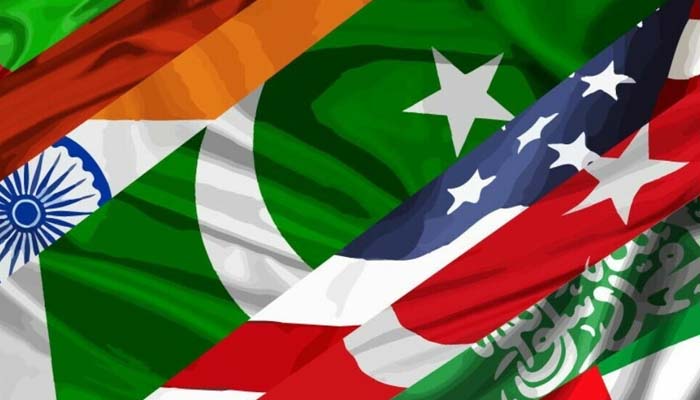In the complex world of international diplomacy, countries often make decisions not just based on strategy or ideology, but out of necessity. For Pakistan, the past few years have made this especially clear. As the country battles one of the worst economic crises in its history, foreign policy is no longer just about regional influence or global image-it’s about survival. From empty foreign exchange reserves to rising inflation and staggering debt, Pakistan’s economic troubles have deeply shaped how it interacts with the world. This crisis hasn’t just changed the country’s internal politics; it’s forced Pakistan to reimagine its relationships with old allies, financial institutions, and neighboring countries.
To understand how Pakistan’s foreign policy has shifted, we need to first grasp the depth of the economic crisis. Inflation has been squeezing everyday citizens, the value of the rupee has dropped sharply, and Pakistan has come dangerously close to defaulting on its debt. In this situation, diplomacy has become a lifeline. Pakistan’s foreign policy today is driven largely by the need for economic support, trade opportunities, and international investments. In simple terms, Pakistan is knocking on the doors of friendly nations not just for strategic cooperation, but for help to keep its economy afloat.
One of the first places Pakistan has turned to is the Gulf region-especially countries like Saudi Arabia, the UAE, and Qatar. These nations have historically provided Pakistan with financial aid, oil at discounted rates, and jobs for millions of Pakistani workers. During this economic crisis, Pakistan has doubled down on strengthening these ties. Prime ministers and top officials have frequently visited Riyadh and Abu Dhabi, not just for handshakes, but to seek real financial help. In return, Pakistan has made sure to support Gulf priorities on the world stage. This relationship is no longer just about religion or history-it’s about mutual benefit and economic survival.
Then there’s China-arguably Pakistan’s most reliable partner in recent years. Through the China-Pakistan Economic Corridor (CPEC), Beijing has invested billions into Pakistani infrastructure, roads, and energy projects. But now, beyond long-term investments, Islamabad
needs short-term relief-loan rollovers, debt easing, and new financial support. China has stepped in where possible, but this support doesn’t come without strings. As Pakistan leans more heavily on China, it must also align more closely with Beijing’s geopolitical stance on issues like Taiwan, India, and global governance.
Perhaps the most complicated relationship during this crisis has been with the International Monetary Fund (IMF). The IMF has helped Pakistan avoid default with emergency loans, but its conditions-like cutting subsidies and raising taxes-often make life harder for ordinary Pakistanis. Pakistan’s foreign policy toward the West has had to adjust accordingly. In order to keep getting support from institutions like the IMF and World Bank, as well as from countries like the U.S. and UK, Pakistan has tried to project stability, commitment to reform, and a stronger stance against extremism. But it’s a delicate balancing act-keeping both Western creditors and domestic audiences satisfied is no easy task.
Closer to home, Pakistan has also explored ways to ease tensions and build trade ties that could help its economy. There have been quiet discussions about restoring limited trade with India, even if political relations remain frozen. Pakistan is also trying to keep good terms with both Iran and Saudi Arabia-longtime rivals in the Muslim world. In a time of economic need, alienating any regional player is too risky. Similarly, after the Taliban took over in Afghanistan, Pakistan has aimed to keep the western border stable, so trade and security don’t take another hit.
Despite all this diplomatic effort, foreign policy alone can’t fix everything. External help might provide breathing space, but real, lasting recovery requires fixing problems at home-like improving the tax system, curbing corruption, and investing in local industry. And let’s not forget: foreign aid often comes with pressure. The IMF demands reforms. China expects loyalty. The Gulf states may expect neutrality or support in regional disputes. Every helping hand has a condition attached. Moreover, Pakistan’s ongoing tensions with India are a huge roadblock to regional trade and growth. Without dialogue and trust, opportunities for economic cooperation in South Asia will remain locked away.
So, what’s the way forward? Pakistan’s foreign policy, in this time of crisis, has become more pragmatic-less about ideology and more about what brings money, stability, and opportunity. That’s not a bad thing. Diplomacy should serve the needs of the people. But for it to work in the long term, Pakistan must look inward. Fixing the economy requires more than foreign aid-it needs honest reform, political stability, and a vision for the future. Only then can diplomacy shift from crisis management to building a prosperous and peaceful Pakistan.




Comments are closed, but trackbacks and pingbacks are open.